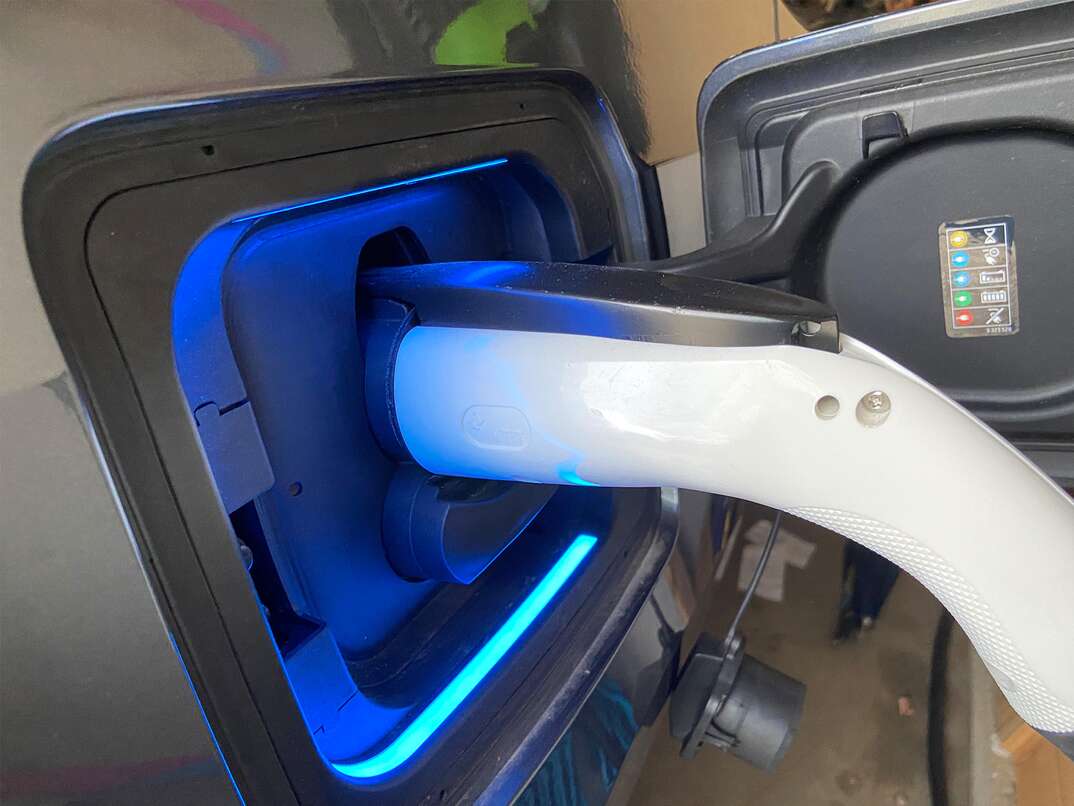What's the Difference Between Level One and Level Two Chargers?

Level 1 EV charger vs. Level 2 EV charger: Which one is better for your home?
Comparing Level 1 and Level 2 charging can help you know what to expect. It can also help you decide what type of charger to install in your garage to charge your electric vehicle at home.
Differences Between Level 1 and Level 2 Electric Vehicle Chargers
The main difference you'll notice on a daily basis between Level 1 vs. Level 2 charging is the speed. However, there are other differences that could factor into your decision.
Charging Time
The charging time is significantly different in a Level 1 than with a Level 2 EV charger. With a Level 1 charger, it could take you 40 to 50 hours to charge to 80% from empty. If you upgrade to a Level 2 charger, that charging time drops to 4 to 10 hours. If you drive a lot and want faster charging, you'll probably want a Level 2.
Another way to look at charging time is how many miles you get per hour of charging. The charging rate for a Level 1 charger is 3 to 5 miles per hour, which is much slower than the 12 to 80 miles per hour of charging you can get with a Level 2 charger. Level 3 chargers, which are only available publicly and not for residential use, can charge at a rate of 3 to 20 miles per minute.
Power Source
Level 1 chargers use 120-volt outlets, making them compatible with any standard outlet. Level 2 chargers use 240 volts of power. If your garage isn't already wired for 240 volts, you'll need to have electrical work done.
Cost
Going the Level 1 route is essentially a free option because the charger usually comes with the vehicle. If you move up to a Level 2 charger, you'll pay for the charger and professional installation. Looking at the benefits of the upgrade can help you decide if it's worth the cost.
Installation
A Level 1 vs. Level 2 EV charger installation comparison reveals that Level 1 chargers are easier. Why? They plug directly into a 120-volt outlet, so you don't need to have anything installed. Level 2 chargers need to be professionally installed by a licensed electrician, which increases the overall cost.
Portability
Because Level 1 chargers plug into any outlet, you can take them with you and charge other places. Level 2 chargers are usually hardwired into your home, which means they're not portable.
More Related Articles
- How Do I Tell If an Electrical Issue Is Serious?
- Can One Bad Outlet Affect Others?
- How to Reset a GFCI Outlet
- What’s in My Electrician’s Van?
- 7 Ways to Save on Your Electric Bill
You should get a Level 1 charger with the purchase of your electric vehicle, so you don't have to buy it separately. Because it uses a standard 120-volt outlet, you shouldn't need any special installation, which means there's no cost associated with this option in most cases.
If you want to upgrade to an EV Level 2 charger, you can expect the charger itself to cost around $500 (CAD 668) plus installation. It needs to be connected to 240 volts of power, so the installation cost can depend on whether your garage is already prepared to handle that higher voltage. If it is, you can expect the installation to cost anywhere from $200 to $500 (CAD 267 to CAD 668). If not, you could spend about $1,000 to $1,500 (CAD 1,336 to CAD 2,003) more for the installation.
Level 1 vs. Level 2 EV Charger: Which Should You Choose?
The decision between Level 1 and Level 2 EV chargers comes down to your budget and driving habits. If you drive long distances most days, it's probably worth it to upgrade to a Level 2 model. You might not make it as far as you want without it. If you stay close to home most days and want to save money, you might stick with the included Level 1 charger. If you're not sure which one to choose, start with the Level 1 charger and see how well it handles your needs. You can upgrade later if it doesn't work for you.
All CAD conversions are based on the exchange rate on the date of publication.
Elocal Editorial Content is for educational and entertainment purposes only. Editorial Content should not be used as a substitute for advice from a licensed professional in your state reviewing your issue. Systems, equipment, issues and circumstances vary. Follow the manufacturer's safety precautions. The opinions, beliefs and viewpoints expressed by the eLocal Editorial Team and other third-party content providers do not necessarily reflect the opinions, beliefs and viewpoints of eLocal or its affiliate companies. Use of the Blog is subject to the
Website Terms and Conditions.The eLocal Editorial Team operates independently of eLocal USA's marketing and sales decisions.



